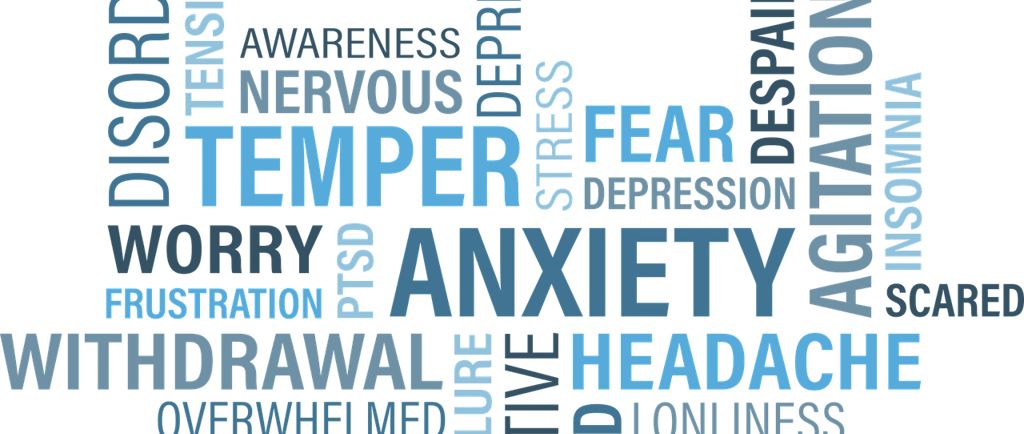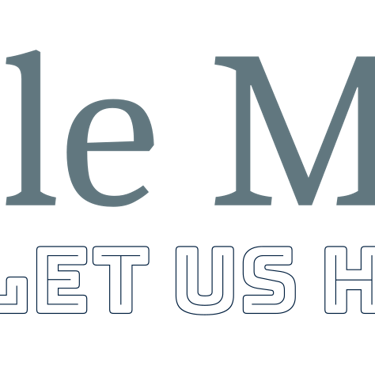How Do I Know If I Have Anxiety And When To Get Help.
Recognizing signs of anxiety? Persistent worry, physical symptoms, or emotional distress? Seek help from a professional for diagnosis, support, and effective management. You're not alone.
5/14/20244 min read


In today's fast-paced world, stress and worry seem to be ever-present companions for many individuals. While occasional feelings of anxiety are normal, experiencing persistent, overwhelming, or debilitating anxiety may indicate an underlying mental health condition. Understanding the signs and symptoms of anxiety is crucial for early detection and effective management. In this comprehensive guide, we'll delve into the intricacies of anxiety, explore its various manifestations, and provide actionable insights on how to recognize if you may be experiencing anxiety.
What is Anxiety?
Anxiety is a natural response to stress, often characterized by feelings of apprehension, worry, and nervousness. While occasional anxiety is a normal part of life, excessive or prolonged anxiety can interfere with daily activities, relationships, and overall well-being. Anxiety disorders encompass a range of conditions, including generalized anxiety disorder (GAD), panic disorder, social anxiety disorder, and specific phobias, among others.
Recognizing the Signs and Symptoms:
Physical Symptoms:
Muscle Tension: Persistent muscle tension, especially in the neck, shoulders, and jaw, can be a physical manifestation of anxiety.
Fatigue: Chronic fatigue or feeling constantly drained, even after adequate rest, might indicate underlying anxiety.
Gastrointestinal Issues: Digestive problems such as stomach aches, nausea, diarrhea, or irritable bowel syndrome (IBS) can be linked to heightened anxiety levels.
Insomnia: Difficulty falling asleep or staying asleep, as well as restless sleep patterns, are common in individuals experiencing anxiety.
Emotional Symptoms:
Excessive Worry: Constant, uncontrollable worry about everyday matters, even when there's no apparent reason for concern, is a hallmark of anxiety.
Irritability: Feeling on edge or easily irritated by minor inconveniences can be a sign of underlying anxiety.
Fear of Losing Control: Intense fear of losing control, going crazy, or experiencing a panic attack can be indicative of anxiety disorders.
Difficulty Concentrating: Trouble concentrating or mind going blank, particularly during stressful situations, is a common symptom of anxiety.
Behavioral Symptoms:
Avoidance: Avoiding certain situations, places, or activities due to fear of triggering anxiety or panic attacks.
Procrastination: Chronic procrastination or avoidance of responsibilities can be a coping mechanism for dealing with anxiety.
Increased Substance Use: Using substances like alcohol, drugs, or prescription medications to cope with anxiety symptoms temporarily.
Cognitive Symptoms:
Racing Thoughts: Persistent, racing thoughts or intrusive thoughts that disrupt daily functioning.
Catastrophizing: Habitual tendency to catastrophize or magnify potential threats, leading to heightened anxiety levels.
Difficulty Making Decisions: Indecisiveness or difficulty making decisions, even about simple matters, can be a sign of anxiety.
Social Symptoms:
Social Withdrawal: Withdrawing from social interactions or isolating oneself from friends and family due to anxiety.
Fear of Judgment: Excessive concern about being judged or evaluated negatively by others in social situations.
Difficulty Maintaining Relationships: Struggles in maintaining healthy relationships due to anxiety-related behaviors or communication issues.
Understanding the Difference Between Normal Anxiety and Anxiety Disorders:
While occasional feelings of anxiety are a normal part of life, anxiety disorders involve persistent and excessive anxiety that significantly interferes with daily functioning. It's essential to recognize the duration, intensity, and impact of anxiety symptoms to distinguish between normal anxiety and an anxiety disorder. Consulting a mental health professional for a comprehensive evaluation is crucial for accurate diagnosis and appropriate treatment.
Seeking Help and Support: HERE we offer a full range of support.
If you suspect that you may be experiencing anxiety, it's essential to seek help and support from qualified professionals. Treatment options for anxiety disorders may include therapy, medication, lifestyle modifications, and self-help strategies. Remember that you're not alone, and help is available.
Recognizing the signs and symptoms of anxiety is the first step toward understanding and managing this complex condition. By paying attention to physical, emotional, behavioral, cognitive, and social indicators of anxiety, individuals can take proactive steps to seek help, cultivate coping strategies, and improve their overall well-being. Remember, it's okay to ask for help, and with the right support, individuals can learn to manage anxiety and lead fulfilling lives.
Knowing when to seek professional help is crucial when dealing with anxiety. While occasional feelings of anxiety are normal, persistent or severe symptoms may warrant medical attention. Here are some signs indicating it's time to see a doctor:
Symptoms Interfere with Daily Life: If anxiety symptoms significantly impact your ability to function at work, school, or in your relationships, it's essential to seek help. Difficulty concentrating, frequent panic attacks, or avoiding activities you once enjoyed are red flags.
Physical Symptoms Persist: Persistent physical symptoms such as chronic muscle tension, digestive issues, or sleep disturbances that don't improve with self-care measures should be evaluated by a healthcare professional.
Emotional Distress: Intense emotional distress, including overwhelming worry, irritability, or feelings of impending doom, may indicate an underlying anxiety disorder that requires professional intervention.
Risk of Self-Harm or Suicidal Thoughts: If you experience thoughts of self-harm or suicide, it's crucial to seek immediate medical attention. These thoughts are serious and require prompt intervention by mental health professionals.
Substance Abuse: If you find yourself turning to alcohol, drugs, or other substances to cope with anxiety symptoms, it's essential to seek help. Substance abuse can exacerbate anxiety and lead to further complications.
Previous Mental Health History: If you have a history of mental health conditions or a family history of anxiety disorders, it's important to monitor your symptoms closely and seek professional help if they worsen or persist.
Unexplained Physical Symptoms: Sometimes, anxiety can manifest as physical symptoms without an apparent cause. If you're experiencing unexplained physical symptoms such as chest pain, dizziness, or shortness of breath, it's essential to rule out any underlying medical conditions by consulting a doctor.
Concerns About Medication: If you're considering medication to manage anxiety symptoms, it's advisable to consult a healthcare professional. A doctor can assess your symptoms, provide a proper diagnosis, and discuss treatment options, including medication, and their potential benefits and risks.
Difficulty Managing Symptoms: If self-help strategies and coping mechanisms aren't effectively managing your anxiety symptoms, it may be time to seek professional guidance. A therapist or psychiatrist can provide personalized treatment strategies tailored to your specific needs.
Intuition: Trust your instincts. If you feel that something isn't right or that your anxiety symptoms are becoming overwhelming, don't hesitate to reach out for help. Seeking support is a proactive step toward improving your mental health and overall well-being.
In conclusion, if you're experiencing persistent or severe anxiety symptoms that interfere with your daily life, it's important to seek help from a qualified healthcare professional. They can provide an accurate diagnosis, offer appropriate treatment options, and support you on your journey toward better mental health. Remember, you don't have to face anxiety alone, and help is available HERE.



